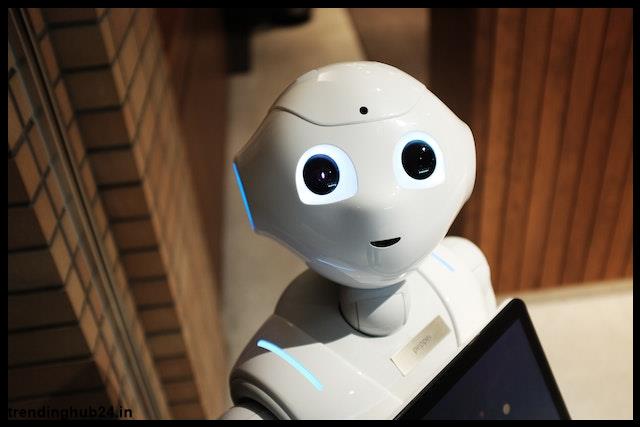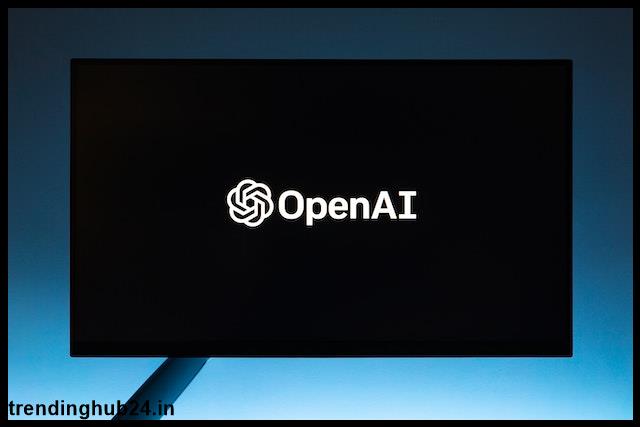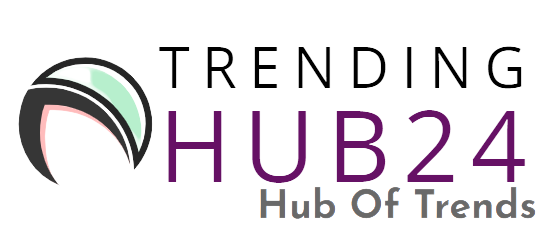🚀 Become a Verified Author on Trending Hub24
✍️ Author Account Available @ $60 / Month | +91 7355993756
Is ChatGPT AI Scary The Future Of Students

ChatGPT was founded in 2015 in San Francisco by #Sam Altman, #Elon Musk, #Greg Brockman, #Ilya Sutzkever and #Wojciech Zaremba.
Table of Contents
Is #ChatGPT Scary for The Future Of Students?

#So let's discuss something about #ChatGPT…
You are reading this post on:- trendinghub24.in
Friends, #ChatGPT is being discussed all over the world today.
#ChatGPT or Generative Pretend Transformer is a #ChatBot developed by research company #OpenAI.
It was founded in 2015 in San Francisco by #Sam Altman, #Elon Musk, #Greg Brockman, #Ilya Sutzkever, and #Wojciech Zaremba.
The #ChatBot was launched in November 2022 and took the world by storm in just three months. Shortly after his release
The bot has attracted more than 100,000 users and is attracting more investors for the AI generation.
Investors have poured 1.7 billion into it in two years, and the figure is increasing by the minute.
Educators and scientists are concerned that using artificial intelligence models such as #ChatGPT in the classroom could lead to students' critical thinking and self-learning.
The simplicity and quality of artificial texts prevent students from developing their own ideas and independent research, resulting in a lack of creativity and originality.
This interest is particularly important in more intellectual and analytical disciplines, such as literature, history, and philosophy. Students in this course should be able to work with complex concepts and observations and test and verify their hypotheses and explanations.
Over-reliance on AI language models undermines these capabilities and leads to irrational research and independent thinking.
In addition, the use of linguistic models may raise ethical questions about scientific integrity and plagiarism. Although some argue that using intellectual property to publish is not plagiarism, students must learn to read sources and publicly acknowledge the opinions of others. Credit must be given

#Good things about #ChatGPT :-
#1. Students benefit from real-time personalized learning that helps them better understand complex concepts and improve their grades.
#2. Teachers can use #ChatGPT to create lesson plans, assignments, and other teaching and learning materials based on specific learning objectives.
#3. As students write their assignments, #ChatGPT guides them through the process and answers questions.
#4. Students can directly interface with the user interface as #ChatGPT is designed to be very simple and intuitive.
#5. It will be very easy for kids to write essays and other text items.
#6. #ChatGPT is convenient for students who do not have access to a tutor or teacher.
#7. It is a useful tool because #ChatGPT is available wherever there is internet.

#8. #ChatGPT can also be accessed from a phone or tablet.
#9. Students do not need to read the entire text, as #ChatGPT summarizes it automatically. You may have more time for more important tasks, such as watching or doing homework.
#10. Another benefit of #ChatGPT is that chat provides feedback on your writing and improves the student's learning experience.
You are reading this post on:- trendinghub24.in
#Bad Things About #ChatGPT :

#1. Independent critical thinking and problem-solving skills can be affected if students rely too heavily on #ChatGPT.
#2. Over time, students may lose the ability to think outside the box and generate original ideas.
#3. Since #ChatGPT plays no role in human emotions, complex human problems can lead to tricky solutions.
#4. As a result, students may accept incorrect results as a basis for decision-making. This can hurt their future training and career.
#5. If students rely more on #ChatGPT for answers and solutions, they may be less motivated to learn on their own.
#6. Unable to interact with students in real-time or give personal feedback. #ChatGPT can limit the learning process.
#7. Children will not try to do things on their own. Instead, they completed the task by entering a question and choosing the same solution.
#8. Students who rely too much on #ChatGPT may lose interest in independent study.
#9. A possible disadvantage is that it may reduce direct communication between teachers and students.
#10. Students can use it to complete school assignments and take notes during exams or other tests.
Conclusions:-
#ChatGPT can help teachers and students achieve their teaching and learning goals more effectively and efficiently.
To ensure that technology facilitates and supports human growth, learning, and development, all stakeholders must recognize the appropriate use of technology, especially in education.
As #Artificial intelligence (AI) like #ChatGPT is increasingly used by students to mark tests and school assignments, some educators are concerned about its impact on learning and critical thinking.
If students rely on chatbots for learning and feedback, they don't get the same personal connection and support from the teacher.
#ChatGPT can be an advantage. However, researchers fear it could affect students' cognitive abilities, impairing their memory and critical thinking.
Some students use #ChatGPT or #AI for personal projects, research, or entertainment, but some Australian states have #banned the use of these devices in public schools.
The impact of #ChatGPT on the future of education is very concerning. In particular, the first victim will be the ability to think.
Proponents of #ChatGPT, or #Artificial Intelligence in Education, claim it can improve educational outcomes for disadvantaged children who lack access to teachers.
However, the future complexity of #ChatGPT or AI cannot be fully predicted.
One thing is for sure, chat is not the end of the GPT search! There are also advanced technologies such as #Transfer learning (TL), #Descriptive artificial intelligence (XAI), #Deep learning (DRL), and artificial general intelligence (AGI). It will probably happen soon.
ChatGPT, the free chatbot released in November 2022 by artificial intelligence (AI) research company OpenAI, has taken the internet by storm. In the first months of its existence, ChatGPT inspired users to imagine many use cases for the model, including negotiating parking tickets, planning workouts, and even creating bedtime stories for children. This included using ChatGPT.
Some artificial intelligence experts believe that ChatGPT could revolutionize how humans interact with chatbots and AI more broadly. Others have expressed serious concerns about the potential for harm to the technology. Below, we explore this new technology and how it's ready to start making money.
You are reading this post on:- trendinghub24.in
Frequently Ask Questions About #ChatGPT:-
Q1. How to open ChatGPT?
#ChatGPT can be accessed by typing chat.openai.com in a search engine and is publicly available in a web browser.
Q2. Can #ChatGPT write programming code?
It can code for you, or even write you a movie, and you can chat about the past, present, and future with #ChatGPT.
Q3. Where does ChatGPT get this data from?
#ChatGPT includes content collected from books, web documents, Wikipedia, articles, and other online media. #ChatGPT data is collected from an online database.
Q4. How to log in to #ChatGPT?
#ChatGPT can be accessed using an email ID and is easy to search.
Q5. Is #ChatGPT good for parenting?
#ChatGPT's impact on education policy remains a cause for concern. In the first accident, there will be a separate inspection opportunity. Enabling technology to encourage and support human growth, learning, and development.
All stakeholders need to determine the appropriate use of technology, especially in the education sector. In addition, teachers should develop teaching methods and curricula to enable students to develop critical thinking and decision-making skills.
Since the role of education is to prepare students for the skills they need to work on, a balance may be needed so that intellectual relaxation and critical thinking skills are not cast aside and address the business challenges and issues faced by the organizations they work for.

